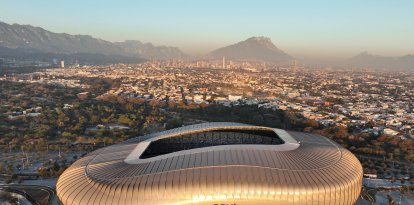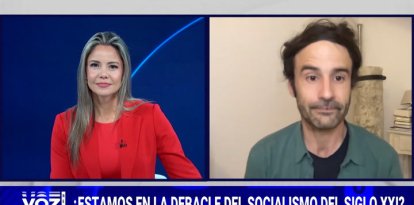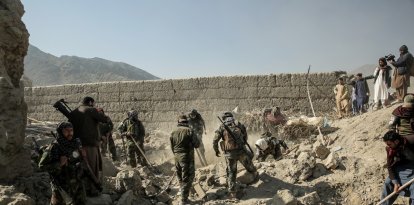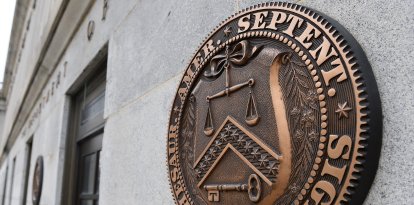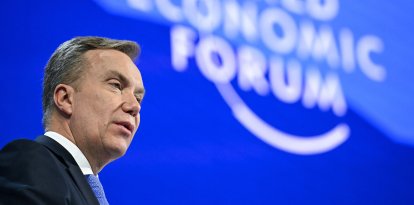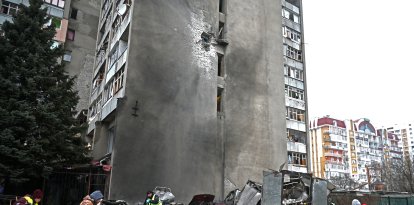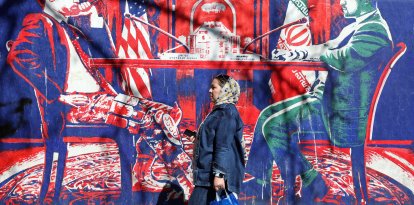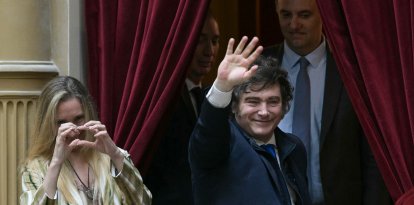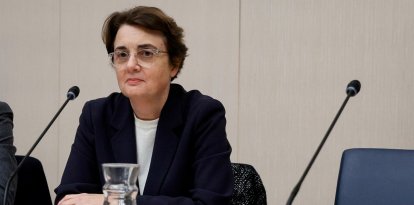Russia promotes the creation of a new Warsaw Pact in Asia
Putin's meeting with the Indian prime minister completes the Russian president's meetings with the leaders of China, North Korea, Kazakhstan and Vietnam.

Putin and Modin embrace.
After the fall of the Berlin Wall and the dissolution of the Union of Soviet Socialist Republics (USSR), Moscow's military alliance with the countries under its influence disintegrated, ending global bipolar tension. However, the new geopolitical reality, in which Moscow despite being weakened still has a lot to say, is also putting US hegemony in check, with new superpowers such as China waking up, and others, such as India, trying to sit at the big boys' table. Vladimir Putin, aware of all this, has turned his eyes towards Asia, especially to the southeast of this continent, trying to strengthen his ties with these countries and create a new front that would split, once again, the world in two: East and West.
The Russian invasion of Ukraine in 2022 and the US and EU sanctions against Russia, served to turn Russia's eyes towards its Asian neighbors, away from its European economic agreements. What was created to economically suffocate the Kremlin became a golden opportunity for Moscow to improve its trade relations with countries like India or China and for them to get oil and gas at a much cheaper price.
Xi, Putin's best ally
Putin's relationship with the Chinese president, Xi Jinping is excellent, and the two have starred in several meetings in recent years to strengthen their commitments, both commercially and in terms of armaments. China has not condemned the invasion of Ukraine by Russian forces. At present, the US Intelligence services consider Beijing a greater danger than Moscow.
Kim Jong-Un: "Together we will fight imperialism"
The Russian leader has also been seen with the Dictator of North Korea Kim Jong Un, a leader characterized by his militaristic and provocative traits. His tests with nuclear-capable missiles over South Korea and Japan have NATO on alert and the US itself has repeatedly warned the leader of the small Asian country to cease his actions, even conducting training exercises with the Seoul army.
It is not surprising, therefore, that the most belligerent statements came out after the two leaders met in Russia last year, when Kim Jong-un said, "We will always support President Putin's decisions and ... together, we will fight imperialism." Last January, the two countries concluded a mutual defense agreement in Pyongyang.
Strengthening trade and military agreements with Vietnam and Kazakhstan
Putin also returned from Hanoi with an agreement to increase military and security cooperation between the two countries. In addition, the two leaders agreed to increase trade relations, a very important point for the Kremlin since Hanoi is one of the most important emerging economies in the region.
The Russian president also took advantage of his trip to Kazakhstan - a Central Asian country - earlier this month to participate in the Shanghai Cooperation Organization summit to strengthen ties with the Astana government. He also showed his good relationship with Erdogan, President of Turkey, a NATO member country.
India, between two waters
Finally, Putin received a visit from the Indian Prime Minister, Narendra Modi. Although Modi was more critical than the other leaders of the Russian president, saying that "war is not the solution"and lamented the death of children in Ukraine, he also discussed the expansion of business between the two countries. Russia is India's main arms supplier and its oil exports have grown considerably since the Ukraine war.
Putin and Modi agreed to increase cooperation in areas from nuclear energy to shipbuilding, in addition to discussing payment methods.













